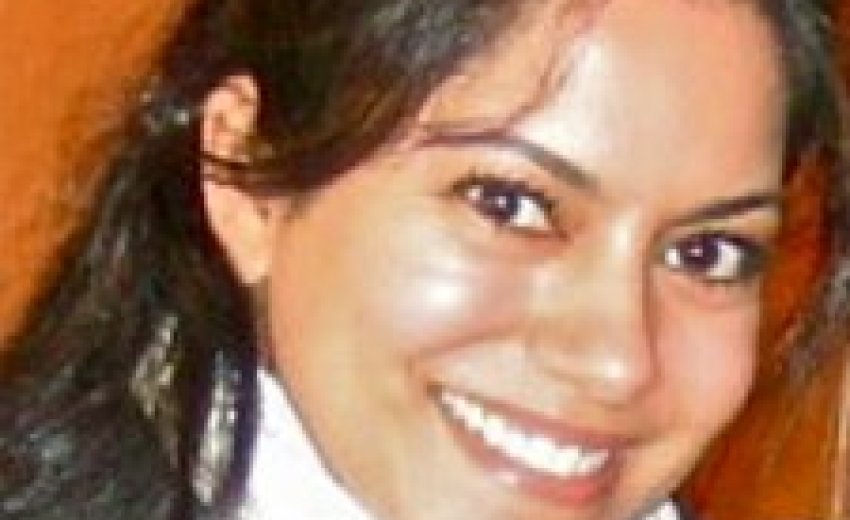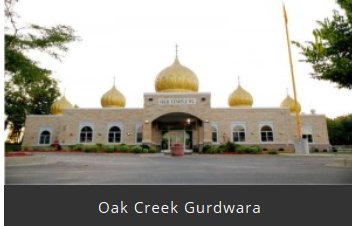 |
|
September 26, 2014: Welcome to the second article in our newest series, Kaur Careers. Often times a lot of us just aren’t aware of all the career options out there. So, in an effort to highlight non-traditional career paths and to inspire Kaurs to explore different educational and job options, Kaur Life launched a new series called “Kaur Careers.” Our first Kaur Career that we explored was speech-language pathologist represented by Rubeena Kaur. Today, we’ll take a look at Sikh woman who is a clinical psychologist & life coach.
Occupation: Clinical Psychologist & Life, Relationship, Executive Coach & Consultant Education: PhD in Clinical Psychology, Certified Professional Co-Active Coach (CPCC) from Coaches Training Institute Describe what you do: I like to wear a lot of hats because it gives me variety in my work and I never have a dull moment. As a psychologist, I have worked for 20 years in the field of trauma. I worked primarily with women and children from communities of color. I helped to empower those who had been impacted by domestic violence, sexual abuse/assault, neglect, and other forms of community violence. In recent years, I have transitioned more into life and relationship coaching where I work with people who are struggling with everyday stressors in the context of dating relationships, marriage, parenting, work/life balance, and career changes. I try to help people reach their highest potential. I do this by getting them really clear on what they want in their life. Sometimes we get stuck somewhere along the way in our personal and/or professional journey. Then we wake up one day realizing we are not living the life we want. Through our sessions, I help people uncover what is holding them back from living their best life. I ask them lots of questions so they can find their own answers from within about where they truly want to go and how they will get there. I support them and hold them accountable in taking specific action steps to reach their goals. As an executive coach and consultant, I work with senior business leaders throughout many industries to guide them in identifying how their personality, behavior, and culture work together to impact their leadership effectiveness. I use a feedback-intensive, behaviorally-focused, results-oriented approach to help executives deepen their understanding of their leadership strengths and challenges. I specialize in executive leader assessment and development, team building, emotional intelligence, organizational and cultural change, and strategic planning. When and how did you realize this was the career path for you? I knew in high school that I wanted to become a psychologist. I took my first psychology course and loved it. Before choosing it as a major in college, I volunteered at many places including the State Mental Hospital where I was able to work with individuals who had significant mental illness and had committed extreme violent crimes. While I was fascinated with people such as Jeffrey Dahmer and John Wayne Gacy and wanted to better understand what motivated their sociopathic behaviors, my experiences at this hospital helped me determine that I didn’t want to work with perpetrators of violence. I believed I would have greater impact in working with the innocent victims of their crimes –those who had been in the wrong place at the wrong time.
What do you enjoy about your job the most? I love connecting deeply with people from all walks of life. I feel so honored that they invite me into their lives and their hearts where they so vulnerably share their biggest dreams as well as their deepest fears. It is soul-fulfilling work to join them as they break down the walls that have kept them from living their best life. I am most passionate about empowering others and helping them find their voice when they have been silent for so long. Because of the varied roles I play, I get to meet a wide range of people with very different challenges. I can assist a woman in improving her communication skills with her husband one moment and then work with the CEO of a company in developing and implementing his strategic vision the next moment. At the end of the day, the common theme is learning to build relationships and respect one another. In addition to connecting with others and having lots of variety, I value freedom — the freedom to be my own boss and to choose who I work with and what I want to do. I am blessed that every day I get the opportunity to make a positive impact in someone’s life from the comfort of my own home, sometimes while wearing my pajamas and sipping chai! Considering it is nontraditional, what were your parents’ reaction? How did you deal with their response? My parents didn’t understand the role that psychology played in our lives, so they were unclear how my many years of schooling were going to result in a practical career. They didn’t know anyone else who had taken this career path before me so they were concerned. They much rather preferred that I go into medicine and become a “real doctor.” The problem was that I couldn’t stand the sight of blood so I knew early on that I wasn’t going to be able to fulfill their expectations. Even when I pushed for becoming a psychologist, they still wanted me to go to medical school and become a psychiatrist instead. It wasn’t easy to go against my parents’ wishes, but I knew that I wanted to go down this road. It was definitely more frightening to not know anyone in my community that had travelled this path, but that didn’t stop me from forging ahead. I developed important skills along the way out of necessity to gain the support I needed so I could eventually be the first person in my family to get a PhD. It was all worth it in the end and it made me stronger than I ever thought I could be. How do balance family and work and hobbies? Like most people, finding balance between all of my competing demands is a challenge. It’s easy to give so much of myself to others and forget to take care of my own needs. The problem is that if I don’t take care of myself, I won’t be able to help others as effectively. I have learned to identify what I need each day to anchor myself and I make sure that I give some of my daily energy to those activities. For example, I try to get enough sleep, eat well, exercise, and spend some time in nature every day. I make sure to surround myself with a positive support system so that when I need to talk about my own life struggles, I know who I can call and trust they will have my best interest at heart. I also always try to be in a place of gratitude. It is so easy to focus our attention on what is missing in our lives and lose sight of all the positive things we have. I have to consciously remind myself throughout the day how blessed I am to have what I do. This attitude of gratitude helps me keep afloat during the tough times, and more importantly, it attracts more positive things into my life. I’ve learned that when I’m grateful for what I have, I end up having more. And when I concentrate on what I don’t have, I feel like I never have enough. How do you feel Sikhi inspires your work? By definition, being a Sikh means being a student. We are always learning and growing from our life experiences. Throughout my work, I am constantly challenging my clients to consider new perspectives in how they are viewing their life struggles. I often ask them, “What are you learning about yourself from this experience?” or “What is this person teaching you about yourself?” My core philosophy is that every situation and person that we are faced with comes into our life at precisely the right moment for a reason. We are meant to grow from the experience and our spiritual development evolves from learning that lesson. If we don’t learn it fully at that time, we will be presented with similar situations in the future so we may learn it better next time. Think about how often we find ourselves repeating the same patterns in our lives. Once the lesson is learned, we are able to break the pattern. What elements of Sikh values are in your work? Hukam means that whatever happens is by Waheguru’s will. According to Sikhism, true happiness comes when we accept this notion. Many times in my work, I see my clients fighting the reality of their situation. They don’t want to accept it or believe it so they have some negative reaction towards a person who caused them pain, such as anger, blame or resentment. I challenge my clients to process the negative event and eventually identify the positive from it. Furthermore, I remind them that what they resist will persist. And when they accept their situation, they are surrendering to it and trusting that they are exactly where they need to be in learning a particular life lesson. By fully embracing that idea, they are able to achieve peace and move forward. I do believe that Waheguru conspires to work in our best interest even if we often cannot see the full picture. content_Gurdwara
What lessons have you learned about Sikhi through your work? Sangat is very important to me. No matter what stage you are in life, you must surround yourself with people who will love, accept, inspire, motivate and bring out the best in you. Whenever I leave to meet a friend, I ask myself, “Am I excited to see this person and spend time with them?” and then when I’m returning home, I ask myself, “How do I feel after meeting this person?” These two questions help me decide if I should continue being close with certain individuals. People change over time as do our needs. Sometimes friends who were good for us at one point in our lives are no longer a positive influence. It’s important to continually assess who you keep close to you as it has a significant impact on the person you are becoming. I live in a constant state of Chardi Kala, meaning relentless optimism. I’ve been told by skeptics that I am sometimes too positive and that is how I know that I’m on the right path. Looking at life through the lens of optimism and joy has been something I have had to learn over the years, and it has made a tremendous difference in the quality of my life. By seeing the good in people and situations on a daily basis, I come with an open heart and I believe that allows me to give and receive love more easily. What advice do you have for young Kaurs who are unsure of what career they should pursue? Learn to listen to your instincts. Think about what skills people have complimented you on over the years. These are your natural gifts given to you by Waheguru. In what environments can your strengths be best used and appreciated? What are your favorite subjects in school? What topics do you enjoy researching online for fun? If you’re just exploring, consider volunteering your time working in places that you find interesting. Talk to adults that are doing the kind of work that you think would make you happy. It’s important to be proactive in this process because it is ultimately your life and your career decision. I see too many people in our community let their parents make this decision for them and that can lead to unhappiness in the long run.
|

 Name: Puni Kalra
Name: Puni Kalra After working in trauma for so long, I decided I wanted to continue to help people but with more of their everyday life stressors. I also wanted to reach more people. Many people in our community do not reach out for help because of the stigma attached to receiving mental health services. I chose to move into life and relationship coaching because I wanted to provide my services to more people across the globe. In my coaching sessions, I often speak with my clients over the phone. This allows people to reach out for help with less shame if they can call from the comfort of their own home.
After working in trauma for so long, I decided I wanted to continue to help people but with more of their everyday life stressors. I also wanted to reach more people. Many people in our community do not reach out for help because of the stigma attached to receiving mental health services. I chose to move into life and relationship coaching because I wanted to provide my services to more people across the globe. In my coaching sessions, I often speak with my clients over the phone. This allows people to reach out for help with less shame if they can call from the comfort of their own home. I have always incorporated some form of Seva into my life. I grew up watching my father provide Seva in our community on a regular basis. When the shooting occurred at the Oak Creek Gurdwara in August 2012, I immediately stepped in to help coordinate the mental health services for the Sikh community. I have been passionate about re-packaging mental health in our community so it is more practical and fun and less stigmatizing. I had co-founded SAPNA (South Asian Psychological Networking Association) and DoSAA (Division of South Asian Americans) for the purpose of bringing together South Asian mental health professionals to better serve our community’s needs. I also adhere to the principle of Dasvandh which is established in the concept of Vand Chakna by Guru Nanak. I am very blessed to do work that I’m passionate about so it is easy for me to contribute more of my time to those who cannot fully afford my services. In my private practice, I have a scholarship fund where I set aside 20% of my time to provide support free of charge to those who need it.
I have always incorporated some form of Seva into my life. I grew up watching my father provide Seva in our community on a regular basis. When the shooting occurred at the Oak Creek Gurdwara in August 2012, I immediately stepped in to help coordinate the mental health services for the Sikh community. I have been passionate about re-packaging mental health in our community so it is more practical and fun and less stigmatizing. I had co-founded SAPNA (South Asian Psychological Networking Association) and DoSAA (Division of South Asian Americans) for the purpose of bringing together South Asian mental health professionals to better serve our community’s needs. I also adhere to the principle of Dasvandh which is established in the concept of Vand Chakna by Guru Nanak. I am very blessed to do work that I’m passionate about so it is easy for me to contribute more of my time to those who cannot fully afford my services. In my private practice, I have a scholarship fund where I set aside 20% of my time to provide support free of charge to those who need it. I have found that the key is to do something you love, that plays to your strengths, and that provides reasonable financial compensation. When one of these three pieces is missing, I have noticed that it causes eventual burnout. Your personality and interests will change a lot over the course of your life so you will want to leave room to grow into different career pathways. The most important thing is that you develop a solid foundation for your education and training needs. If you have that, you can launch into many things over time. Make sure you surround yourself with positive people who believe in you. There will always be naysayers and it’s important not to listen to them. When people discourage you from following your dreams, it’s often because they are projecting their own fears and insecurities on to you. Rather than letting go of your dreams, let go of those negative people and replace them with friends and family that will encourage you to succeed.
I have found that the key is to do something you love, that plays to your strengths, and that provides reasonable financial compensation. When one of these three pieces is missing, I have noticed that it causes eventual burnout. Your personality and interests will change a lot over the course of your life so you will want to leave room to grow into different career pathways. The most important thing is that you develop a solid foundation for your education and training needs. If you have that, you can launch into many things over time. Make sure you surround yourself with positive people who believe in you. There will always be naysayers and it’s important not to listen to them. When people discourage you from following your dreams, it’s often because they are projecting their own fears and insecurities on to you. Rather than letting go of your dreams, let go of those negative people and replace them with friends and family that will encourage you to succeed.